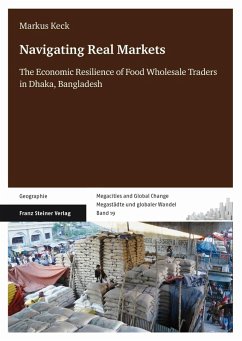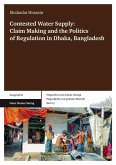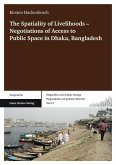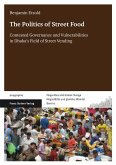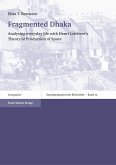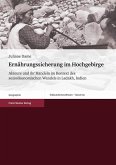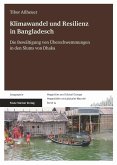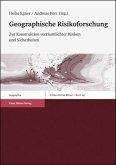In 2007 and 2008, Bangladesh was subject to a food crisis, which intensely hit the country's capital. Dhaka's food supplies were repeatedly disconnected due to floods and cyclones and world market prices for staple foods increased dramatically. In the middle of this situation, the national government launched eviction drives of numerous informal markets in Dhaka. Yet, despite of all these constraints, food traders still managed to guarantee steady supplies. Who are these traders and how did they make Dhaka's food system robust enough to avoid a catastrophe? This study concentrates on Dhaka's wholesale markets where food enters the city, and from where it flows into the urban food system.
The e-book offers a fresh analytic perspective for economic geography by placing emphasis on 'real markets', their institutional architectures, their actors and networks, and their specific political arena. Its focus is on the resilience of Dhaka's food wholesale traders. The study demystifies megacities as synonyms for human misery and hardship - not by overlooking poverty, exclusion and vulnerability, but by highlighting people's strengths, their confidence and their capacities to cope with crisis.
Markus Keck is Assistant Professor (akademischer Rat) at the University of Göttingen. He studied Geography, Cultural Anthropology, Modern History, and Political Science in Cologne and received his doctorate from the University of Bonn in 2012. His work is primarily concerned with the current dynamics of food systems in the Global South. His regional focus is in South Asia.
The e-book offers a fresh analytic perspective for economic geography by placing emphasis on 'real markets', their institutional architectures, their actors and networks, and their specific political arena. Its focus is on the resilience of Dhaka's food wholesale traders. The study demystifies megacities as synonyms for human misery and hardship - not by overlooking poverty, exclusion and vulnerability, but by highlighting people's strengths, their confidence and their capacities to cope with crisis.
Markus Keck is Assistant Professor (akademischer Rat) at the University of Göttingen. He studied Geography, Cultural Anthropology, Modern History, and Political Science in Cologne and received his doctorate from the University of Bonn in 2012. His work is primarily concerned with the current dynamics of food systems in the Global South. His regional focus is in South Asia.
Dieser Download kann aus rechtlichen Gründen nur mit Rechnungsadresse in A, B, BG, CY, CZ, D, DK, EW, E, FIN, F, GR, HR, H, IRL, I, LT, L, LR, M, NL, PL, P, R, S, SLO, SK ausgeliefert werden.

